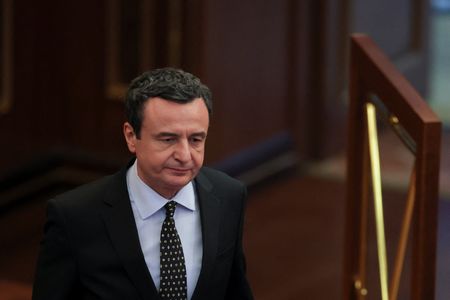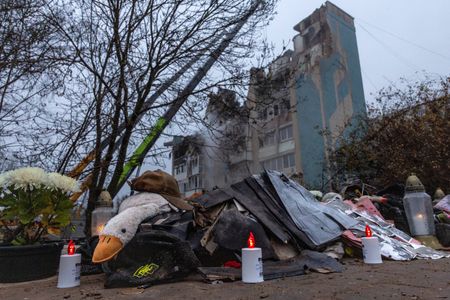(Reuters) -Renk’s chief executive said the company had not directly profited from the war in Ukraine, after the tank gearbox maker set a goal of nearly tripling its revenue by 2030 earlier on Thursday.
“Tank transmissions are our most important profit driver,” CEO Alexander Sagel told analysts in a call after Renk’s capital markets day, and estimated the defence sector “super cycle” would continue for another 10-15 years.
The German group is targeting consolidated revenue excluding mergers and acquisitions within a range of 2.8 billion to 3.2 billion euros ($3.2 billion to $3.6 billion) in 2030.
The revenue goal echoes that of Rheinmetall, which said on Tuesday that it targeted a fivefold rise in its sales by 2030 driven by Europe’s renewed interest in defence.
However, Renk’s shorter-term targets were below analysts’ consensus, according to J.P. Morgan, which sent its shares 4% lower by 1151 GMT.
“Shares now look quite attractive on 2030 estimates, but the market may still need to digest the lower guide for 2025 and 2027,” the analysts said in a note to investors.
DEFENCE SPENDING, MAINTENANCE BUSINESS TO BOOST GROWTH
Even if growth rates are lower after 2030, the company is set to benefit from its maintenance, spare parts and replacement transmissions business, which currently accounts for 40% of its revenue, Sagel said.
He expects the share of the defence business in Renk’s total revenue to increase to around 90% by 2030, and did not rule out selling off parts of the industrial business.
“Let’s wait and see,” Sagel said. Renk reviews its portfolio annually, with the next review scheduled for the end of January 2026.
European defence firms have seen their stocks and order books grow as European countries invest in their militaries to deal with the threat posed by Russia after it invaded Ukraine in early 2022.
“So far, we haven’t directly profited from the war in Ukraine,” Sagel said. Renk plans to start supplying Eastern Europe soon, likely out of Poland.
($1 = 0.8681 euros)
(Reporting by Tristan Veyet and Paolo Laudani in Gdansk, Alexander Hübner in Augsburg, editing by Milla Nissi-Prussak)








